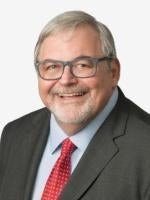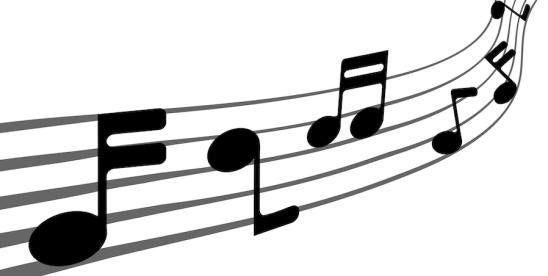The ongoing conflict between former bandmates of The Guess Who demonstrates how the strategic use of intellectual property (IP) law can potentially protect a musician’s name and legacy.
Canadian rockband The Guess Who, famous for songs like “American Woman” and “These Eyes,” featured four original members: Jim Kale, Burton Cummings, Garry Peterson, and Randy Bachman (the Original Band). Bassist Jim Kale left the Original Band in 1972, which later disbanded in 1975. After Kale discovered around 1986 that no one held a trademark registration for the name “The Guess Who,” he obtained a federal trademark registration and formed a new band using the iconic name (the New Band). The New Band has occasionally featured one other original member Peterson on drums while on tour. Cummings and Bachman refer to the New Band as a “cover band.”
Cummings and Bachman were miffed that Kale and Peterson were “passing off” the New Band as the Old Band, and feared the reputation and legacy of the Original Band would be tarnished. Hijinx ensued.
Cummings and Bachman filed suit in the US District Court for the Central District of California late last year alleging false advertising, unfair competition, and violation of right of publicity in California.[1] But Cummings was not done there; in an extra step to block the New Band from performing the hits he penned decades ago, Cummings terminated his public performance license agreements with the performing rights organization of which he was a member, willingly sacrificing music publisher and songwriter public performance royalties as a result.
The Lawsuit: Alleged Violation of the Lanham Act
While the New Band holds a federal trademark registration for the name “The Guess Who,” this does not insulate the New Band from liability under the Lanham Act or other laws if provisions thereof are violated. The complaint filed in the US District Court for the Central District of California alleges that Kale devised a scheme to confuse the public into thinking Cummings and Bachman are associated with the New Band, in violation of, among other things, unfair competition and false advertising under the Lanham Act. The complaint points to several examples in describing the alleged scheme, including using Cummings’s vocals and likeness in advertisements, describing the New Band as being behind classics like “American Woman,” and Kale publicly stating in an interview with the Winnipeg Free Press that his intent in forming the New Band was to hire “a band of trained monkeys out there just to piss [Cummings] off. I’d love to take the high road, but I’m not going to.”
A false advertising claim under the Lanham Act requires the plaintiff to prove that: (1) the advertisements were false or misleading; (2) the advertisements deceived, or had the capacity to deceive, consumers; (3) the deception had a material impact on purchasing decisions; (4) the misrepresented products affected interstate commerce; and (5) the plaintiff has been, or is likely to be, injured by the false advertising. The law of false advertising is part of the broader law of unfair competition. Under the Lanham Act, liability arises for unfair competition when an individual attempts to deceive the public, even indirectly, by using another’s reputation to draw customers.
The Self-Help (and Potential Sabotage): Terminating Public Performance Licenses
Amidst this pending litigation, in an effort to try to prevent the New Band from publicly performing at concerts the hit musical compositions he authored, Cummings terminated the public performance licenses he had entered into with a performing rights organization.[2] While the move will thwart his undoubtably steady income stream of public performance royalties, it will certainly capture the New Band’s attention and that of the concert venues who have booked, or may in the future contemplate booking, the New Band to perform.
In music there are two copyrights: one in a musical composition (i.e., the lyrics and music) and the other in a sound recording that embodies the musical and/or vocal performances of a particular musical composition. US copyright in a musical composition exists the moment the work is fixed in a tangible medium of expression. The right of public performance is one of the rights under copyright.
Entities like broadcasting companies, venues, and radio stations wishing to publicly perform a copyright owner’s musical composition must hold a license permiting the public performance of the applicable musical composition(s). To streamline the licensing process, most music publishers (aka the copyright owners of musical compositions or their designees) enter into a license agreement with a performing rights organization (in the United States, primarily the organizations American Society of Composers, Authors and Publishers [ASCAP], Broadcast Music, Inc. [BMI], and/or Society of European Stage Authors and Composers [SESAC], and, in Canada, Society of Composers, Authors and Music Publishers of Canada [SOCAN]) that represents, and is able to grant a single public performance license covering, millions of musical compositions separately owned or controlled by thousands of music publishers. This enables third parties to easily obtain a public performance license, and for publishers and songwriters to look only to a limited number of parties to receive payment of public performance royalties.
If a public performance license is successfully terminated with respect to a The Guess Who song, it would potentially leave both a performer (e.g., the New Band) and a venue liable for copyright infringement and corresponding damages if such song is publicly performed at a concert. Cummings is still free as a copyright owner to issue licenses with respect to his shares of the songs — at his discretion.
The move by Cummings is bold, and the dispute from inception to present day demonstrates how an understanding of IP rights can potentially act as a shield from or weapon against one’s competitors.
[1] Cummings v. Burton, No. 16-2250, 2017 WL 8220210 (6th Cir. Sept. 19, 2017)
[2] The effectiveness of such strategy may vary depending upon Cummings’s ownership shares for a given song (i.e., whether he is the sole author and owns 100% or is a co-author with less than a 100% copyright ownership interest). In the United States, absent an agreement to the contrary among the copyright owners in a song, one copyright owner can issue a non-exclusive license over the entirety of the copyright interests in that song.






 i
i


